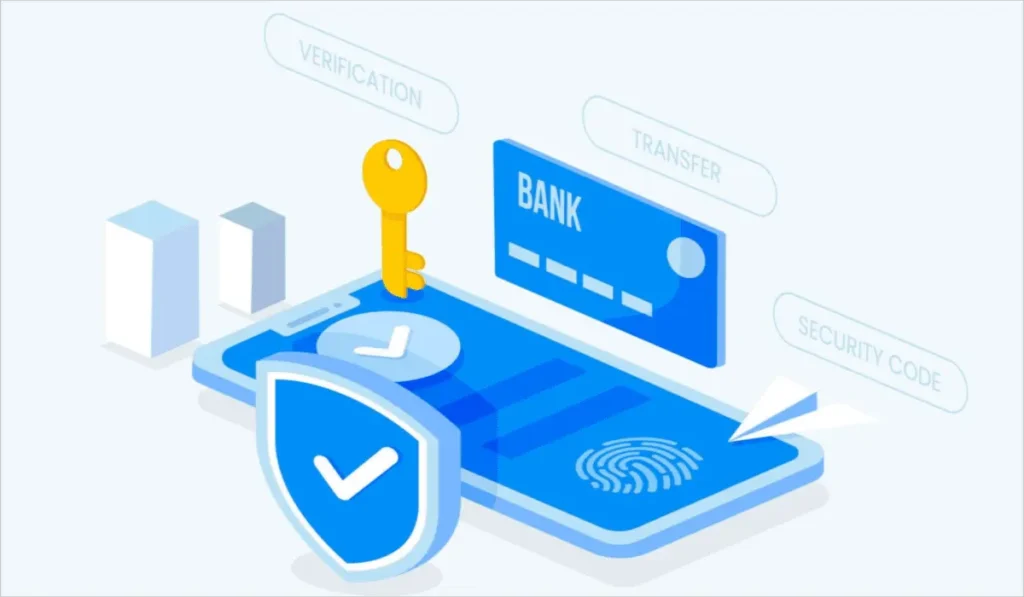
The history of online casinos is a fascinating journey of innovation and technological advancement. Let's start with a timeline highlighting some key milestones:
| Year | Event |
| 1994 | The First Online Casino |
| 1996 | The First Online Gambling Commission |
| Late 1990s | Growth and Competition |
| 2000s | Mobile Gaming and Live Dealer Games |
| Present | Virtual Reality and Cryptocurrency |
As you can see, the industry has evolved significantly from its humble beginnings in the mid-1990s. The first online casino was launched in 1994 by Microgaming, a software company based on the Isle of Man. Shortly after, in 1996, the Kahnawake Gaming Commission was established, becoming the first regulatory body for online gambling. The late 1990s saw a boom in the number of online casinos, with increased competition leading to improvements in game variety and software quality. The 2000s brought about mobile gaming, allowing players to access their favorite casino games from their smartphones. The introduction of live dealer games further enhanced the online gambling experience, bridging the gap between online and land-based casinos. Today, the industry continues to innovate with the integration of virtual reality and cryptocurrency.
Early online casinos faced a unique set of hurdles. Here are some of the major challenges they had to overcome:
Players were hesitant to share financial information online, and ensuring secure transactions was crucial.
Early internet speeds and computer processing power were limited, impacting game quality and user experience.
The online gambling industry was largely unregulated, leading to inconsistencies and concerns about fairness.
Competition was fierce, and early online casinos had to find ways to stand out and attract players in a new and unfamiliar market.
Let's delve a bit deeper into the challenge of building trust. Since online casinos involved sharing sensitive financial information, establishing a secure and trustworthy platform was paramount. Early online casinos had to implement robust security measures, such as encryption technology, to protect player data and ensure fair gaming practices.
Why it matters
Trust and Security in Online Casinos
The success of online casinos hinges on trust. Players need to feel confident that their personal and financial information is secure and that the games are fair. Reputable online casinos invest heavily in security measures and obtain licenses from recognized gaming authorities to build and maintain this trust.
Limited technology was a huge obstacle for early online casinos. Think about it: the mid-1990s was the dial-up internet era!
Stop & think
Imagine trying to play a graphically-intensive game today with a slow internet connection. It would be frustrating, right? Now imagine that, but even worse! That's what early online casino players had to contend with.
What kind of impact do you think slow internet speeds and limited computer processing power had on the early online casino experience?Slow internet speeds led to long loading times, laggy gameplay, and frequent disconnections. Limited processing power resulted in simple graphics, basic gameplay, and a smaller selection of games.
These limitations had a big impact on the games that could be offered. Early online casinos primarily focused on simple games like basic slots and card games that didn't require a lot of processing power or bandwidth. However, as technology rapidly advanced, online casinos were able to offer more sophisticated and engaging games. The introduction of broadband internet and more powerful computers paved the way for better graphics, smoother gameplay, and a wider variety of games, ultimately transforming the online casino experience into what we know today.
The legal and regulatory landscape surrounding online casinos has been complex and ever-evolving. In the early days, the industry operated in a sort of 'Wild West' environment with limited oversight. This led to concerns about fairness, security, and the potential for fraud.
One of the first major regulatory bodies to emerge was the Kahnawake Gaming Commission, established in 1996 by the Mohawk Council of Kahnawake in Canada. They began issuing licenses to online casinos, setting standards for fair gaming and responsible gambling practices.
Over time, more countries and regions began to develop their own regulations, leading to a more structured and accountable online gambling industry. However, inconsistencies and challenges remain. Different jurisdictions have different approaches, and keeping up with the latest laws can be a daunting task for both operators and players.
Online gambling regulations there are quite interesting. The industry is primarily overseen by the Philippine Amusement and Gaming Corporation (PAGCOR).

PAGCOR both operates its own casinos and licenses and regulates other gaming establishments, including online casinos.
Online casinos licensed by PAGCOR are generally allowed to offer their services to players outside the Philippines.
While there are no laws explicitly prohibiting Filipinos from gambling online, they are generally restricted from playing on PAGCOR-licensed sites. However, they can access international online casinos not licensed in the Philippines.
It's important to note that recent developments have impacted the online gambling landscape in the Philippines. President Ferdinand Marcos Jr. announced a ban on online gambling operations in July 2024, citing concerns about crime and other issues. The full impact of this ban and its implementation are still unfolding. So, the information I've provided gives you a good overview of the historical context, but the current situation is somewhat in flux.
The recent ban on online gambling in the Philippines, specifically targeting Philippine Offshore Gaming Operators (POGOs), has significant implications for the country's economy, society, and the gambling industry itself.
Let's break down some of the key implications as listed:
Economic Impact: The ban has led to job losses in the POGO industry and related sectors like real estate and hospitality. The government is also losing out on revenue from POGO licenses and taxes. However, the long-term economic effects are still being debated, with some arguing that the ban could lead to the development of other industries.
Social Impact: The ban aims to address concerns about crime, money laundering, and social problems associated with POGOs. However, there are concerns about the displacement of workers and potential underground gambling activities.
Legal and Regulatory Landscape: The ban is forcing a reassessment of the country's gambling regulations. There are discussions about how to regulate the remaining domestic online gambling sector and whether to allow any form of offshore gambling in the future.
International Relations: The ban has implications for relations with China, as many POGOs were Chinese-operated. It also highlights broader regional trends of Southeast Asian countries tightening regulations on online gambling.
The full impact of the ban will continue to unfold in the coming months and years. It's a complex issue with no easy answers, and its long-term consequences are still uncertain.
Technology has been the driving force behind the incredible evolution of online casinos. From their humble beginnings to the sophisticated platforms we see today, every step has been marked by technological advancements. Let's explore some key areas:
| Technology | Impact |
| Internet Speed and Bandwidth | Early online casinos were limited by slow dial-up connections. The advent of broadband internet enabled faster loading times, smoother gameplay, and more complex games with richer graphics and features. |
| Mobile Technology | Smartphones and tablets revolutionized online casino gaming, allowing players to access their favorite games anytime, anywhere. Mobile-optimized platforms and apps provide a seamless and convenient gaming experience. |
| Live Dealer Games | Video streaming technology brought the authentic casino experience to online platforms. Live dealer games allow players to interact with real dealers and other players in real-time, enhancing the social and immersive aspects of online gambling. |
| Virtual Reality (VR) | VR technology is creating truly immersive casino environments, allowing players to feel like they're stepping into a real casino. VR casinos offer an unparalleled level of engagement and realism. |
| Blockchain and Cryptocurrency | Cryptocurrencies like Bitcoin offer secure and anonymous payment options for online casinos. Blockchain technology enables transparent and verifiable gaming outcomes, enhancing trust and fairness. |
These are just a few examples of how technology continues to shape the online casino industry. As technology advances, we can expect even more innovation and exciting new developments in the world of online gambling.
Overcoming security challenges was a huge priority for early online casinos. Their success depended on assuring players that their money and personal information were safe. They did this through a combination of technological advancements and regulatory measures. Let's take a look!

Encryption Technology
This scrambles data as it travels between your computer and the casino's servers, making it unreadable to anyone intercepting it. Think of it like a secret code that only the sender and receiver can understand.
Secure Socket Layer (SSL)
This is a protocol that establishes a secure connection between your browser and the casino's website, ensuring that all data transmitted is encrypted. Look for the padlock icon in the browser address bar to know a site is using SSL.


Random Number Generators (RNG)
These algorithms ensure that game outcomes are completely random and fair. They are regularly audited by independent third parties to ensure fairness and prevent manipulation.
Secure Payment Gateways
These specialized services handle financial transactions between players and casinos, using advanced security measures to protect sensitive data. They offer various payment options like credit cards, e-wallets, and bank transfers, all with multiple layers of security.

In addition to these technological solutions, the emergence of regulatory bodies like the Kahnawake Gaming Commission helped establish industry standards for security and responsible gambling. These organizations issue licenses to online casinos that meet specific criteria, including robust security measures.
The late 1990s saw a period of rapid growth and competition in the online casino industry. Once the Kahnawake Gaming Commission established a framework for regulation, the floodgates opened!
Why it mattersCompetition in BusinessCompetition is crucial for any industry, but especially for a new and rapidly evolving one like online casinos. It drives innovation, improves quality, and provides consumers with more choices and better value.
More and more companies entered the market, eager to capitalize on the growing popularity of online gambling. This fierce competition led to several important developments:
As companies vied for players' attention, they invested heavily in developing more sophisticated software with better graphics, smoother gameplay, and more realistic sound effects. This made online casinos more visually appealing and engaging.
To stand out from the crowd, online casinos expanded their game offerings. New variations of classic games like slots, blackjack, and roulette were introduced, along with entirely new game concepts.
Competition for players led to a proliferation of bonuses and promotions. Online casinos offered welcome bonuses, free spins, loyalty programs, and other incentives to attract and retain players.
With players having more choices, online casinos had to improve their customer service to stay competitive. They introduced 24/7 support, live chat options, and faster response times to address player inquiries and issues.
This period of growth and competition shaped the online casino industry into what it is today – a diverse and dynamic market with a wide range of options for players. The focus shifted from just being online to being the BEST online!
In the late 1990s, online casinos were still finding their footing, but some classic games quickly emerged as player favorites. These games often mirrored what was popular in land-based casinos, but with added convenience and accessibility.
Slots
The spinning reels and potential for big jackpots have always made slots a casino favorite. Early online slots were simpler than today's elaborate versions, but they still provided plenty of excitement.
Video Poker
This game combined the elements of poker and slots, offering a fast-paced and engaging experience. Its popularity was partly due to its low house edge, giving players a decent chance of winning.
Roulette
The thrill of watching the ball spin around the wheel and land on a lucky number has always captivated players. Online roulette offered the same excitement, with various betting options and straightforward rules.
Craps
This dice game, known for its lively atmosphere and complex betting options, was also popular in early online casinos. It provided a social and interactive experience, even in the digital realm.
While the graphics and features were simpler back then, these games laid the foundation for the vast and diverse online casino game libraries we enjoy today.
The 2000s brought about two major technological advancements that significantly changed the face of online casinos: mobile gaming and live dealer games. The rise of smartphones with faster internet connections meant that people were no longer restricted to playing casino games at home on their desktops. This opened up a whole new world of possibilities!
Let's dive into each of these innovations:
With the advent of smartphones and tablets, online casinos rushed to develop mobile-optimized websites and dedicated casino apps. This made it possible for players to enjoy their favorite casino games on the go, anytime, anywhere. Key advantages of mobile gaming included:
Convenience
Players could access casino games during their commute, lunch break, or even while waiting in line.
Accessibility
Mobile gaming expanded the reach of online casinos, allowing more people to play who might not have regular access to a computer.
Touchscreen Functionality
Touchscreens offered a more intuitive and interactive way to play casino games, enhancing the overall experience.
Live dealer games combined the convenience of online gambling with the authenticity of a land-based casino. Using video streaming technology, players could watch real dealers shuffle cards, spin roulette wheels, and interact with them in real-time. This bridged the gap between online and offline gambling, offering a more social and immersive experience.
Together, these innovations significantly boosted the popularity of online casinos, making them more accessible, engaging, and entertaining for a wider audience.
Live Blackjack
A classic card game where you try to beat the dealer by getting a hand closer to 21 without going over.
Live Roulette
Watch the roulette wheel spin in real-time and bet on where the ball will land.
Live Baccarat
A simple card game with a sophisticated feel, where you bet on the Player's hand, the Banker's hand, or a tie.
Live Poker
Test your poker skills against other players and a live dealer in popular variants like Texas Hold'em and Three Card Poker.
Live Game Shows
A newer category of live dealer games, inspired by popular TV game shows, offering fast-paced action and exciting bonus rounds.
These games offer a more social and interactive experience than traditional online casino games, with real dealers, real cards, and the element of chance unfolding right before your eyes.
You've arrived at the cutting edge! Virtual Reality (VR) and Cryptocurrency represent the newest wave of technology influencing online casinos. While still in their early stages of adoption, these innovations hold immense potential to transform the future of gambling.
Let's explore how each technology is making its mark:
VR aims to create a truly immersive casino experience that goes beyond what's possible with traditional online platforms. By using VR headsets, players can step into a virtual casino environment, interact with other players, and play games in a realistic 3D world.
Stop & think
Imagine attending a poker tournament in Las Vegas without leaving your living room. Or walking around a bustling casino floor, choosing your favorite slot machine, and hearing the sounds of coins clinking all around you – all through a VR headset.
How do you think VR could change the social aspect of online casinos?
VR could make online gambling much more social. Players could interact naturally with each other through avatars, creating a virtual community around casino games.
Cryptocurrencies, such as Bitcoin, are digital currencies that offer several advantages for online gambling. They provide secure and anonymous transactions, faster processing times, and lower fees compared to traditional payment methods.
| Feature | Benefit |
| Anonymity | Players can gamble without revealing their personal banking information, enhancing privacy. |
| Security | Cryptocurrency transactions are secure and encrypted, reducing the risk of fraud and identity theft. |
| Speed | Deposits and withdrawals are processed much faster than traditional methods, often within minutes. |
| Lower Fees | Cryptocurrency transactions typically involve lower fees than using credit cards or bank transfers. |
| Decentralization | Cryptocurrency transactions are not controlled by banks or governments, providing players with more autonomy. |
Both VR and cryptocurrency are still evolving technologies, but their potential to disrupt the online casino industry is undeniable. As these technologies mature and become more widespread, we can expect even more innovative and immersive gambling experiences to emerge.
Summary
The online casino industry began in 1994 with the launch of the first online casino by Microgaming. Soon after, in 1996, the Kahnawake Gaming Commission was established, bringing regulation and legitimacy to the industry. The late 1990s saw rapid growth and competition, leading to better software, more game variety, and enticing bonuses. The 2000s marked a turning point with the introduction of mobile gaming and live dealer games, making online casinos more accessible and immersive. Today, virtual reality (VR) and cryptocurrency are poised to revolutionize the industry further, promising even more engaging and innovative gambling experiences.
